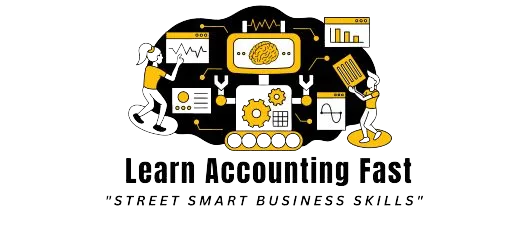Business Education and Skills Development
Charting a New Course for Business Owners and Investors
Let’s be real. The skills that make a business owner or investor successful
are a whole different ball game compared to what’s needed in a 9-to-5 job.
The path to success here is filled with unexpected twists and turns—like suddenly
needing to be a sales expert in the morning, a tax strategist by lunch, and a
master negotiator before dinner. It’s a wild ride.
But that’s what makes it exciting, right? Let’s take a closer look at the
critical skills you need to build, grow, and manage your own enterprise,
and why they matter.
Sales: The Lifeblood of Business Success
Sales is more than just a skill—it’s survival. Without it, a business is just
a fancy hobby.
While employees may specialize in their craft, entrepreneurs have to be
out there hustling.
It’s not just about making a sale; it’s about creating a steady stream of
revenue that keeps the lights on and the dream alive.

a. Generating Revenue
At the end of the day, no sales means no revenue.
And no revenue means no business. Entrepreneurs need to master the entire sales process, from awkward cold calls to celebratory contract signings. It’s about turning potential customers into actual buyers.
It’s about turning potential customers into actual buyers.
b. Building Relationships
Sales is more like a dance than a sprint—it’s about finesse.
Sure, closing the deal matters, but nurturing relationships is the secret sauce. Building trust is essential; otherwise, you’re just another face in a sea of offers.
Want repeat business and those golden referrals? Build real connections, not just transactions.
Ever seen someone make a deal with a friend at a backyard BBQ? That’s sales at its finest—personal, authentic, and effective.
c. Persuasion and Negotiation
Sales isn’t just about pushing products—it’s about selling value. And that requires persuasion.
Whether it's convincing a potential client why they need your service or negotiating terms with a supplier, persuasion is at the core of business interactions.
Think of it like crafting a story that captivates your audience. (Fun fact: great salespeople are often fantastic storytellers.)
d. Marketing Synergy
Sales and marketing—they’re like Batman and Robin. Marketing attracts leads, while sales converts them.
Successful entrepreneurs know this duo works best together. You can’t separate them. You just can’t.
Align your sales strategies with marketing campaigns, and you’ll see results. Ignore this, and you’re wasting valuable opportunities.
Taxation: The Elephant in the Room
Let’s face it, taxes can feel like a constant shadow following you around. But here’s the thing—if you get it right, taxation can be your best ally in boosting profitability. Yeah, really.
a. Tax Planning
This isn’t just for accountants. Tax planning is a critical part of running a business, not something you think about once a year.
Minimizing tax liabilities involves understanding deductions, credits, and how to structure your operations to take advantage of them. Ignorance in this area can cost you a fortune—no joke.
It’s like trying to fill a leaky bucket with water.
b. Different Tax Structures
Sole proprietorships, LLCs, S-Corps, C-Corps—they all sound confusing, don’t they?
But each comes with its own set of tax perks (and pitfalls). Understanding how these structures impact your taxes is a must.
Choose wisely. Go the wrong route, and you’ll be drowning in double taxation or missing out on reinvestment benefits.
c. Tax-Deductible Expenses
This is where things get interesting. Office space, employee salaries, even business travel can all be deducted.

But here’s the catch—you have to keep track of everything. Meticulous record-keeping is the only way to ensure you’re
maximising these deductions.
d. International and State Tax Differences
Running a business across state lines or internationally? Then you’re in for a wild ride.
Different jurisdictions mean different rules. Some places offer tax advantages that can be game-changers if you know how to play it right.
Just remember: ignorance isn’t bliss here—it’s expensive.
Leveraging Assets: The Real Art of Business
If you’re trading time for money, you’re stuck in the employee mindset. Successful entrepreneurs and investors learn to leverage assets—it’s how they generate wealth beyond their immediate efforts.
a. Understanding Assets
Think beyond physical stuff like real estate or equipment. Intellectual property, like patents or trademarks, can be equally valuable. Entrepreneurs need to identify, acquire, and manage assets that generate income.
This is where the real money is.
b. Using Debt to Leverage Assets
Remember when we talked about debt? It’s back, and it’s important here too.
Borrowing money to buy assets that appreciate in value is how you make debt work for you.
Yes, it’s risky, but if managed properly, it’s worth it. It’s like using a catapult to go further, faster.
c. Scalability Through Systems
Systems are the secret to scaling a business. It’s all about creating processes that allow growth without a proportional increase in costs.
Think automated sales funnels, franchise models, or licensing deals. The idea is to build a machine that keeps running even when you step away.

d. Intellectual Property as an Asset
IP isn’t just for tech giants. Whether it’s a unique product, software, or even a brand name, intellectual property can be a major revenue generator. Protect it, leverage it, and you’ll have an asset that provides long-term returns.
Financial Literacy: The Survival Skill
Knowing your way around the numbers is not optional—it’s critical. Without financial literacy, you’re flying blind.
a. Cash Flow Management
Cash flow issues can sink even the most profitable businesses. Entrepreneurs need to understand how money moves in and out—think of it like your business’s heartbeat. It’s about timing: getting paid before you have to pay others.
b. Reading Financial Statements
Income statements, balance sheets, and cash flow reports aren’t just for accountants. They’re like maps guiding your decisions.
A profitable business on paper can still fail due to poor cash flow management, and reading these statements is how you spot the warning signs.
c. Balancing Profitability and Growth
Growth sounds exciting, but it can be a trap. Scaling too fast can strain resources and lead to cash crunches.
On the flip side, focusing only on profits can stifle long-term potential. It’s a balancing act, and there’s no magic formula—it’s all about timing and strategy.
Leadership and Team Building: The Final Piece
Running a business is more than managing numbers—it’s about managing people. Leadership is a different animal altogether.
a. Building a Strong Team
No one builds a great business alone. Hiring people smarter than you in specific areas isn’t just good—it’s necessary.
A strong team brings diverse skills to the table, filling in the gaps you can’t.
b. Delegation and Management
Entrepreneurs often struggle with letting go. But delegation isn’t a luxury; it’s a necessity.
By focusing on strategy and growth, rather than micromanaging, you’ll find your business grows faster and more sustainably.
c. Decision-Making and Problem-Solving
Decisions, decisions. Entrepreneurs face them daily, and not all are clear-cut. Good decision-making often comes down to intuition combined with data —sometimes you just have to go with your gut.
Problem-solving is the same: it’s not just about finding the right answer, but finding it fast enough to stay ahead.
Conclusion
Success as a business owner or investor demands an entirely different set of skills than traditional employment.
You need to be part salesperson, part strategist, part leader—all while managing your financial health.
It’s about playing chess when others are playing checkers.
By mastering sales, taxation, asset leverage, financial literacy, and leadership, you’ll be better positioned not just to survive—but to thrive, scale, and ultimately create lasting wealth.
It's time to thrive in these trying times by taking advantage of this opportunity for personal growth.
Be the greatest you can be…
Join us, click the link below for short, sharp, simple video courses that give you confidence and street-smart business skills to simplify accounting and focus on growing your business to succeed.
Latest Posts
The Six Laws of
Wealth Creation
The Six Laws of Wealth Creation. These timeless actions work in 2025’s rapid-change environment and give you calm, repeatable steps to grow money.....
How to Read Business
Financial Reports
A Story of Business Secrets Hidden in Reports
Sarah sat in her office staring at a thick folder of financial reports. Sales, costs, cash flow....
The Millionaire
Mind in Action
Timeless Wealth, Flow, and Power from Robert Kiyosaki,Frank Kern, Tony Robbins
and Open Ai......
Why Cost Control Is the Forgotten Key to Profitability
Most entrepreneurs chase sales growth like it’s the only thing that matters.They spend thousands on ads, new products, and fa ncy offices.....
Master Prompts For
Financial Analysis
The Complete Small Business Guide to Financial Analysis: Formulas, Examples, and Tips.These are super-powerful questions you can ask an AI to help..
How To Solve Any Business
Problem With Ai
AI can help you solve all of these faster, smarter, and more affordably, if you know how. This guide will show you exactly how to do that.........
Disclaimer: The content shared on this blog and in these videos is for informational and educational purposes only. Despite my 30 years of experience as a business owner, I am not a certified financial advisor, accountant, or legal professional. The insights and tips shared are based on personal experiences and should not be taken as professional financial or legal advice. For financial, legal, or professional advice, please consult with a certified professional in the respective field. I disclaim any liability or responsibility for actions taken based on any information found in this blog or these videos.
Copyright Learn Accounting Fast - All Rights Reserved 2025









Facebook
Instagram
X
LinkedIn
Youtube